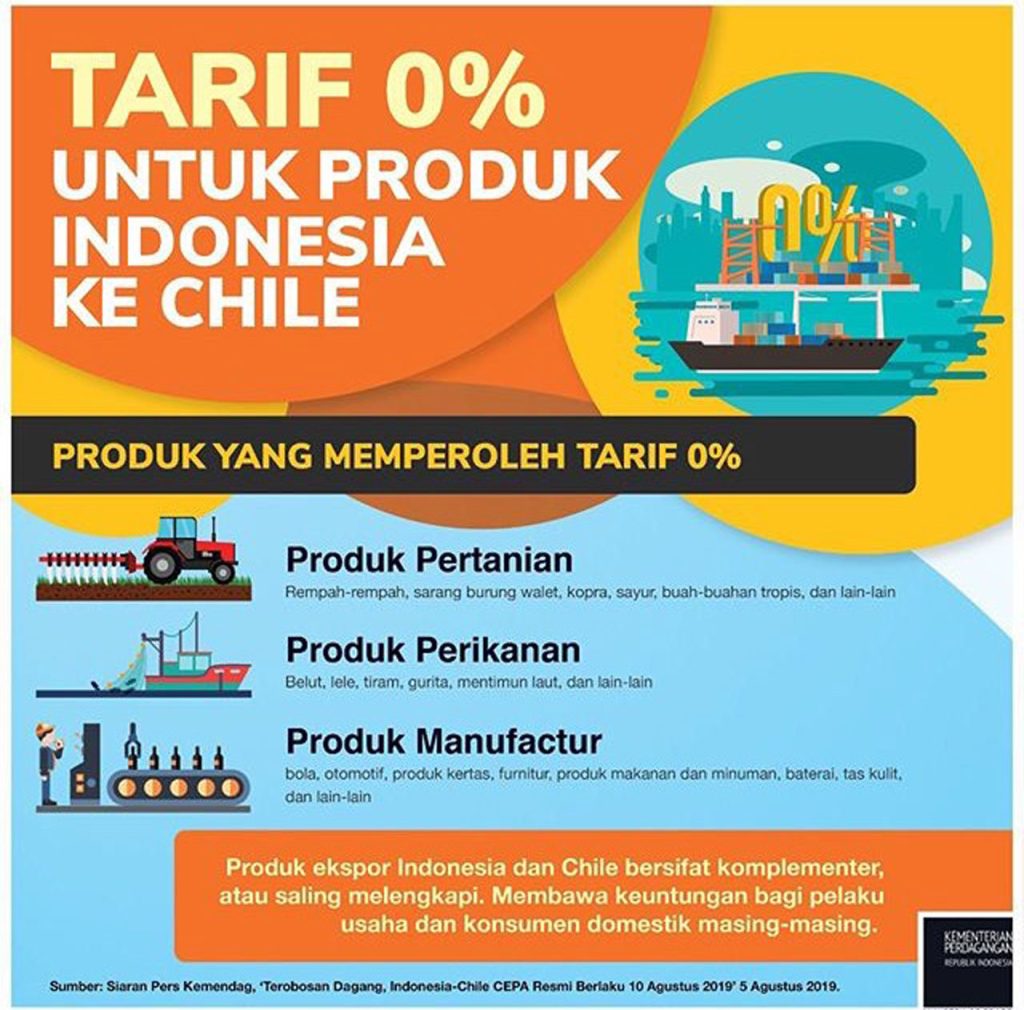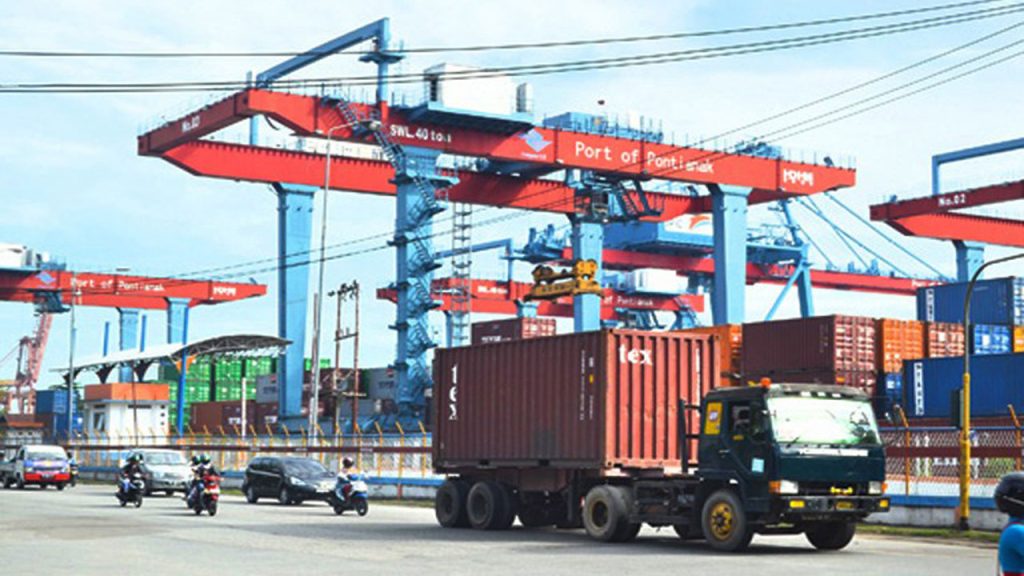The Ministry of Trade (Ministry of Trade) ensures that the Indonesia-Chile Comprehensive Economic Partnership Agreement (IC-CEPA) will come into effect on August 10, 2019. It is predicted that after five years after IC-CEPA, total trade between Indonesia and Chile will increase 32% from USD278.5 million ( 2017) to USD369.2 million.

“In addition, Indonesia’s exports are projected to increase by 65% ​​or valued at USD 104 million. Chile is a potential country for the increase and diversification of Indonesia’s trade,” said Director of Bilateral Negotiations at the Ministry of Trade Ni Made Ayu Marthinidi Jakarta, Monday (5/8/2019).
The commitment of Indonesia and Chile in the IC-CEPA, namely Chile, will erase import duties on 89.6% or as many as 7,669 product tariff posts from 8,559 existing tariff posts. A total of 6,704 of them will immediately get 0% import duty on August 10, 2019, while 965 tariff posts will be phased out over the next 6 years. Meanwhile, Indonesia will remove tariffs on 9,308 tariff items from Chile.
Indonesian products that get a 0% tariff on the Chile market are agricultural products, such as spices, swallow’s nests, copra, vegetables, and tropical fruit; fishery products such as eels, catfish, oysters, octopus and sea cucumbers; manufacturing products such as balls, automotives, paper products, furniture, food and beverage products, batteries and leather bags.
While Chile products that get 0% tariff on the Indonesian market are agricultural and fishery products such as apricots, grapes, cuttlefish and shellfish; mining products such as copper, petroleum and coal gas; and industrial products such as sawn timber, chemicals, and motor vehicles.
The main and potential export products of Indonesia to Chile that receive preferential rates are footwear, vehicles and components; machinery and equipment; knitted clothing and accessories, electronics and components, non-knitted clothing, washing agent soap, grain oil, textile materials, paper; coffee, tea, spices, aluminum, artificial flowers, fish and seafood, and various chemicals.
“The Indonesian government has mapped products that have not yet been exported to Chile, but has the potential to increase the value of exports, such as palm oil and its derivatives. In addition, the government has also examined products that can use Chile as a hub for export to countries. in the Latin American region, “Made said.
According to Made, the types of products in Indonesia and Chile’s trade are complementary, which brings benefits not only to exporters, but also to Indonesian domestic businesses and consumers.
Source: sindonews.com



